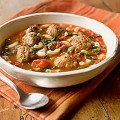Picky eaters are the nightmare of all parents. However, children can develop sensitivity to smell, texture, or even taste as they are growing up. A lot of things change when kids get to eat solid food and normal meals, so parents must be prepared to expect some obstacles!
Some picky eating habits also appear to mirror the people around them, whether it is in the family or even at school.
Psychologists also reckon that picky eaters may be coping with stress through their eating habits. Put yourself in their shoes: Young children who are going to school for the first time may be anxious at the thought of being away from you and playing with someone they don’t know. More often than not, these habits can be unlearned as parents become aware of triggers and encourage their children to try new tastes.
But in the meantime, parents must focus on maintaining a healthy diet for their little ones. So how can you make sure they’ve got all the nutrients they need when they refuse to eat some foods? Here are some tips:
Consider vitamin supplements
The human body needs vitamins and minerals for health purposes. However, picky eaters can struggle with significant vitamin deficiencies, which can put them at high risk. Therefore, it can be a good idea to introduce fun and easy to take kids multivitamins. Gummy vitamins add a playful twist as they look like a sweet treat that children can’t resist.
As a rule of thumb, you want to focus on the following vitamins:
- Vitamin A
- Vitamin C
- Vitamin B (B1, B2, B12, etc.)
- Vitamin D
- Vitamin K
- Folate
Picky eaters who struggle with texture
What is easier from a child’s perspective: eating a piece of fruit or receiving the vitamins they need through breastfeeding? As children’s first approach to food is in liquid form, many can find it unpleasant to consume solid food, especially fruits and vegetables. So, you can help them by changing food texture so they can still get their nutrients. Smoothies and lassi recipes are a fantastic way to combine fresh ingredients and some protein.
Make the most of the food they eat
Cooking will often reduce the nutritional content of fruits and vegetables. Dry heat or wet heat will affect vitamins and minerals.
Water-soluble vitamins, such as vitamins B and C, are reduced through water-based cooking. If your child loves broccoli, for example, poaching, simmering, or boiling it, will reduce its vitamin C intake. As vitamins escape in the water, switch to homemade, slow-cooked broccoli-based soup to retain all the vitamins.
Microwaving, surprisingly, is one of the best methods to conserve nutrients, along with stir-frying.
Grilling, baking, and roasting will decrease most vitamins the longer you expose them to heat. Vitamin C completely disappears when roasting your food.
In conclusion, feeding picky eaters a healthy diet can be a tough challenge. Parents must be willing to consider new cooking techniques and recipes to ensure little ones get plenty of nutrients.
As frustrating as it is, remaining patient and understanding can make a big difference in gaining the trust of your picky eaters. Gradually, they can grow their confidence and be ready to try out new flavors and textures!
Related Posts
- How to Handle Picky Eaters?
I am sure all Moms out there experience a time when their kids will just…
- 4 Ideas to help picky eaters try healthy foods
Try as you might, it can be difficult to encourage picky eaters to eat something…
- How Healthy Online Diet Clubs Killed the Crash Diet
There is a plethora of fad weight loss plans nowadays, especially as news comes out…


















